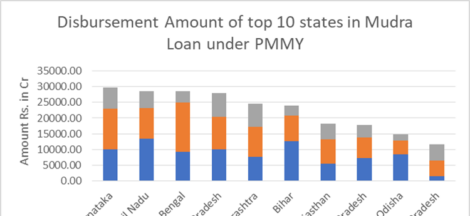By C.J. Atkins
Hamas will win if Israel holds elections. That’s essentially the claim made by Benjamin Netanyahu this weekend as he hit back at U.S. political leaders pressuring him to send his country to the polls.
Forced to respond to the explosive growth of a mass ceasefire movement in the U.S., many Democratic Party politicians have stepped up their expressions of “frustration” with Netanyahu’s government and its execution of the brutal war against Gaza.
Last week, Senate Majority Leader Chuck Schumer—the highest-ranking Jewish politician in the U.S., a longtime supporter of the State of Israel, and staunch backer of the government there following the Hamas attacks of Oct. 7—directly called for new elections in Israel.
He declared that Netanyahu had “lost his way by allowing his political survival to take precedence over the best interests of Israel” and now constitutes an “obstacle to peace” in the Middle East.
Repeating critiques commonly heard from activists in the ceasefire movement, especially those affiliated with Jewish Voice for Peace, Schumer said that Netanyahu is part of a “radical right-wing” coalition that stands in the way of peace negotiations and a two-state solution. He said the Israeli leader “has been too willing to tolerate the civilian toll in Gaza”—now over 31,000.
Schumer specifically singled out Finance Minister Bezalel Smotrich and National Security Chief Itamar Ben Gvir, saying there was a “nastiness” in how they use their positions and power. Smotrich has called for the total elimination of Palestinians from the West Bank, among other crimes. Ben Gvir, meanwhile, has been overseeing the distribution of guns to illegal Israeli West Bank settlers, prompting further violence.
Schumer’s speech was the latest in a string of rhetorical shifts on the part of U.S. leaders that had previously been lockstep in their support of Israel in its war against Palestinians.
In early March, Vice President Kamala Harris called for an “immediate ceasefire” in Gaza. President Joe Biden said he favoured the same in his State of the Union address a few days later, and in the interim, Harris hosted Benny Gantz—a member of the Israeli War Cabinet but a rival to Netanyahu.
The Netanyahu-Smotrich-Ben Gvir regime is feeling the heat not just from its U.S. allies, though. Recent opinion polls conducted in Israel show that 65% of people want early elections and that if a vote was held today, the prime minister and his coalition would go down to defeat. Netanyahu, of course, is well aware of how tenuous his hold on power is, and that’s why he shot back at Schumer’s suggestion an election should be held.
In a softball interview with Fox News this weekend, Netanyahu said the U.S. is “wrong to try to replace the elected leaders of a sister democracy and a staunch American ally…during the time of war.” He said Schumer’s speech would be equivalent to an Israeli leader calling for elections in the U.S. after the 9/11 terrorist attacks to remove President George W. Bush. “It’s wrong,” he said.
He accused Schumer—and by connection Biden since he endorsed the Schumer speech—of helping Hamas. “The only thing we should be focused on is changing the regime in Gaza…not the duly elected government of Israel.
“We have to finish the job,” Netanyahu said, repeating his intention to soon attack Rafah, the last major city in southern Gaza where over a million Palestinians have sought refuge.
If the ceasefire movement in the U.S. has its way, however, Netanyahu shouldn’t expect the critiques from Washington to end anytime soon. Nor can his allies in D.C. look forward to being free of the Gaza question.
With worldwide outrage against Israel’s genocidal war escalating by the day and a general election looming in the U.S., Democratic politicians can no longer ignore the demand for peace. The rhetorical shifts coming from the Biden administration and Senate leaders like Schumer are a direct result of grassroots pressure for a ceasefire.
In Democratic primaries in Michigan, Washington State, Minnesota, and elsewhere, hundreds of thousands of “uncommitted” and other protest ballots have been cast in campaigns—propelled by Arab-American voters in many instances. These results serve as a warning signal for the president that his re-election campaign is jeopardized by his continuing backing for the Israeli military.
Across the country, over 70 cities have passed resolutions calling for a ceasefire; campaigns are underway in dozens more municipalities to do the same. In the labour movement—a key Democratic constituency—more and more unions are signing ceasefire demands, including the AFL-CIO, the country’s largest labour federation.
And while the changing talk coming from Biden, Harris, Schumer, and others is welcomed, ceasefire activists in the streets and peace supporters in Congress continue to point out that more than words is needed. The U.S. could strangle Netanyahu’s war machine today if it would halt the flow of weapons.
Seven U.S. senators, led by Bernie Sanders and Chris Van Hollen, are pushing Biden to do just that, pointing to a 1961 law that requires the U.S. to stop any aid going to an ally that violates humanitarian law. As they point out, sending weapons to Netanyahu is illegal under U.S. law.
“Some people say we’re not grateful enough for Schumer/Biden’s harsh words for Netanyahu,” Tariq Kenney-Shawa, a policy fellow at the Palestinian Policy Network, wrote late last week. “Israel has killed 31,000 Palestinians; 2 million displaced; entire families wiped out; 13,000 children gone; thousands more torn apart. Anything short of intervention is too late.”
While the ceasefire movement remains perpetually dissatisfied with how Biden continues to fund Israel’s genocide and the glacial pace of his movement toward supporting a ceasefire, Republican leaders give even more reason for worry, as they have responded to recent developments by tightening their embrace of Netanyahu.
On Sunday, GOP nominee Donald Trump portrayed himself as a better friend of the Israeli state. “All of a sudden, he [Biden] dumped Israel,” Trump said. “He just said essentially that Bibi Netanyahu should take a walk.” He told the Israeli leader that he should “finish it quickly,” referring to the war on the Palestinian people.
GOP Senate Leader Mitch McConnell, meanwhile, said the Democratic Party “has an anti-Israel problem,” and pledged that Republicans would be the ally that “Israel deserves.”
The relationship between Netanyahu and the Republican Party is a cozy one going back years. In 2015, the GOP and the Israeli government conspired to torpedo President Barack Obama’s nuclear negotiations with Iran; Netanyahu spoke in Congress at Republicans’ invitation to undermine the effort.
Taken together, the responses and actions of Republicans show that if they take the White House and both houses of Congress in November, the ceasefire movement—and all other progressive and democratic movements—would have even less leverage to force policy changes.
That’s why anti-war activists are determined to not let up in their effort to pressure Biden and the Democrats to further change course. Words without actions, they say, threaten to split the anti-MAGA coalition and throw the election to the GOP.
Layla Elabed, organizer for the “Uncommitted” Listen to Michigan campaign, summed up the danger in a recent interview: “It is our hope that Joe Biden would not risk his presidency, not risk the White House, to someone like Donald Trump.” (IPA Service)
Courtesy: People’s World



